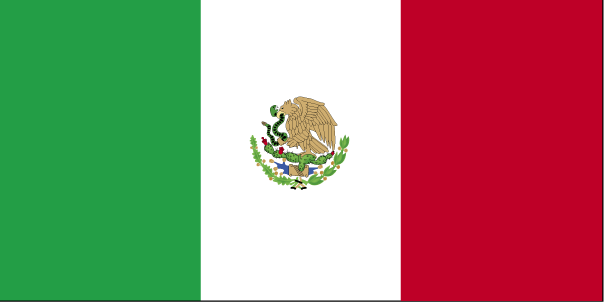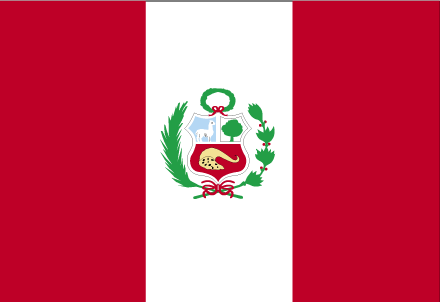Resolution #162
 |
The question of combating poverty in elderly populations |
| Committee: ECOFIN | |
| Main Submitter: UK | |
| Submitted: 01/04/2022 16:57 |
| Status |
|---|
| Passed cosubmitter sheet validation |
| Approved by approval panel |
| Can be selected for debate by secretariat |
Options
Co-submitters
 | Mexico |
 | Lebanon |
 | USA |
 | United Arab Emirates |
 | Poland |
 | Peru |
Resolution
Committee: ECOFIN
The question of: combating poverty among elderly populations
Main submitter: United Kingdom
Co-submitters: Mexico, United States of America, Lebanon, United Arab Emirates, Poland, Peru, Malta, Brazil, Sweden, New Zealand, Ukraine, Turkey, Ghana
THE ECONOMIC AND FINANCIAL AFFAIRS COUNCIL,
Defining poverty as 'a state or condition in which a person or community lacks the financial resources and essentials for a minimum standard of living',
Reaffirming the need for a major overhaul of pension schemes in many member nations as the current schemes in place have not done enough to prevent elderly populations from slipping below the poverty line,
Reminding that the problem of poverty in elderly populations is an issue that needs to be addressed before a country can reach the Sustainable Development Goals 1 (No Poverty), 3 (Good Health and Wellbeing) and 10 (Reduced Inequalities) set out in 2015,
Recognising that poverty among ageing populations is an increasing issue as global population rises,
Concerned by the effects the increasing population of the Earth will have on basic resources such as food reaching the most vulnerable,
Aware of the fact that many elderly individuals who are living in poverty are disabled and do not have proper access to healthcare, which is furthered by the extent of their poverty,
Noting with concern the significant rise in poverty levels in elderly populations, particularly in rural areas and developing nations,
1. Encourages the creation of a UN sub body for the financial support of elderly citizens called the "United Nations Commission for the Financial Support of the Ageing Population" or UNCFAP, its role including but not limited to, providing support through a hotline which will advise elderly citizens on suitable monetary management programs/practices,
a.) invites member nations to allow for an appointed council of economists and demographers under the UNCFAP to monitor member nations' ageing populations and their economic well-being and provide guidance to member nations on how to care for and cater for their elderly's financial well being,
b.) further suggests for the implementation of a regional UNCFAP support centre to be placed in each region of agreeing member nations for the support of elderly citizens through advisory workers, financial counsellors, and informative seminars,
c) to oversee the distribution of Social Security and Pensions given to those from the World Bank at the age of retirement in order to ensure that there is no discrimination due to age, race, sexuality, disability or religion;
2. Suggests the implementation of a mass media campaign educating ageing populations on accessible pension schemes and personal finance management as well as informing the younger population on how they can prepare financially for their retirement by means including but not limited to pamphlets, newspaper articles and television ads, while also:
a.) proposing that this campaign be used to bring awareness to the new hotline and support offered by the UNCFAP,
b.) advocating the creation of an education program to be used in conjunction with the mass media campaign this education program would include but not be limited to lectures and classes at local centres as well as free online seminars, emphasising that this program would include both education for current elderly populations as well as education for the younger populations on preparing for their retirement;
3. Urges all member nations to allow for the subsidisation of necessities for all elderly citizens living below the poverty line (minimum income needed to secure necessities of life) to allow them to live comfortably until the above clauses take effect in ways such as but not limited to:
a.) recommending that citizens over the age of 65 (age is subject to change depending on factors such as but not limited to retirement age and life expectancy) be allowed to apply for this scheme for the next ten years and continue it indefinitely or until they are in a comfortable financial position emphasising that after one decade this scheme will be closed to new applicants to decrease the risk of dependency and to accommodate for the action of the above clauses,
b.) suggesting that to execute this scheme a card be issued to each suitable applicant which can be presented at shops and certain services reducing prices, the further
cost can be recorded and sent to the local UNCFAP authority who will issue this payment back to said retailer;
4. Further suggests the implementation of an easy to access savings/pension scheme for younger populations in lower income brackets in all member nations to help prepare populations for their retirement and reduce the risk of poverty in later life while envisaging this scheme will:
a.) have a minimum term of 20 years and if this term is met a 10% reward will be added to the value of the balance,
b.) be accessible to ages 30-50 although this is subject to change depending on factors such as but not limited to life expectancy and average income levels this scheme should be overseen by the UNCFAP as well as the CPD and the World Bank;
5. Further encourages member states to grant support, both financial and social, to caregivers of elderly people, including but not limited to:
a. Means-based stipends, to ensure their access to necessities,
b. Support groups, to create support and information exchange among people in similar situations,
c. Training programmes, on topics such as medical equipment and appliances;
6. Recommends that the UNCFAP provide funding from the UN to low-income countries to provide social security to vulnerable people in their society, who are unable to provide an income for themselves and further to this will keep data on all countries being funded, such as amounts of money sent, and will carry out routine checks to make sure the funding is reaching those who need it instead of being used by corrupt leaders;
7. Calls for a greater emphasis on the rights of disabled people in the workplace in the UN human rights committee, advanced through the creation of a subcommittee, the UN committee for the rights of disabled people in the workplace or UNCRDW to help and guide disabled people into the workplace and providing them with training and education on employment and the workplace, to ensure a greater involvement of disabled people in the economy and to make them eligible for social welfare schemes;
8. Further calls for the creation of a biennial conference held in Brussels and headed by the UNCFAP in order to;
a. Promote dialogue between nations on this topic,
b. Allow member nations to share their own suggestions for solutions to this problem, as there is no one size fits all solution for this problem,
c. Allow analysis of data provided by member nations to see if the measures taken to tackle this issue have been effective.